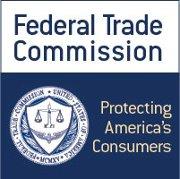
FTC Charges Auto Dealerships in Arizona and New Mexico with Falsifying Consumers’ Information on Financing Documents
The Federal Trade Commission has charged a group of four auto dealers operating in Arizona and New Mexico, near the border of the Navajo Nation, with a range of illegal activities, including falsifying consumers’ income and down payment information on vehicle financing applications and misrepresenting important financial terms in vehicle advertisements.
This is the FTC’s first action alleging income falsification by auto dealers. The complaint also names the dealerships’ owner and manager, Richard Berry, as a defendant, and owner and president, Linda Tate, as a relief defendant.
“Buying a car is one of the biggest purchases consumers make. When consumers tell an auto dealer how much they make and how much they can pay upfront, the dealer can’t turn those facts into fiction,” said Andrew Smith, Director of the FTC’s Bureau of Consumer Protection. “The FTC expects auto dealers to be honest with consumers from the first advertisement to the final purchase.”
Corporate Defendants
According to the complaint, since at least 2014, Tate’s Auto has sought to increase its sales by falsifying consumers’ monthly income and down payments on financing applications and contracts submitted to third-party financing companies. The four dealerships named in the complaint are Tate’s Auto Center of Winslow, Tate’s Automotive, Tate Ford-Lincoln-Mercury, and Tate’s Auto Center of Gallup.
The FTC charges that, during the sales process, Tate’s Auto asked consumers to provide personal information—including their name, address, and monthly income—and told consumers they would submit the information to financing companies. According to the complaint, however, instead of using consumers’ actual information, in many cases Tate’s Auto falsely inflated the numbers, making it appear that consumers had higher monthly incomes than they really did. Tate’s Auto often inflated the amount of a consumer’s down payment as well, according to the complaint.
The complaint also alleges that Tate’s Auto representatives often prevented consumers from reviewing the income and down payment information on the forms, such as by rushing consumers through the process of reviewing and signing the financing applications, having consumers fill out the forms over the phone, and failing to give them the income and down payment portion of the application before they signed.
In other cases, Tate’s Auto allegedly altered financing documents after consumers signed them, without their knowledge. Such consumers, the FTC alleges, often were approved for financing based on the false information Tate’s Auto provided. As a result, financing companies extended credit to consumers who defaulted at a higher rate than qualified buyers. Many of the affected consumers are members of the Navajo Nation.
The complaint also alleges that Tate’s Auto’s advertising deceived consumers about the nature and terms of financing or leasing offers. For example, Tate’s Auto allegedly advertised discounts and incentives to consumers without adequately disclosing limitations or restrictions that would prevent many customers from qualifying for them.
Finally, the FTC alleges that Tate’s Auto’s social media ads violated federal law by failing to disclose required terms. The complaint charges Tate’s Auto with violating the FTC Act, the Truth in Lending Act (TILA), and the Consumer Leasing Act (CLA). The FTC is seeking an injunction barring the defendants from such practices in the future.
Individual Defendants
The complaint also names Richard Berry as a defendant and Linda Tate as a relief defendant. According to the FTC, acting as owner of the four dealerships, Berry formulated, directed, controlled, had the authority to control, or participated in Tate’s Auto’s allegedly illegal conduct. The FTC charges that Tate has received hundreds of thousands of dollars from the other defendants, including funds directly connected to the alleged unlawful conduct.
The Commission vote authorizing the staff to file the complaint was 5-0. The complaint was filed in the U.S. District Court for the District of Arizona. The FTC wishes to acknowledge the valuable assistance of the Navajo Nation Human Rights Commission during the investigation of this case.
NOTE: The Commission files a complaint when it has “reason to believe” that the law has been or is being violated and it appears to the Commission that a proceeding is in the public interest. The case will be decided by the court.
